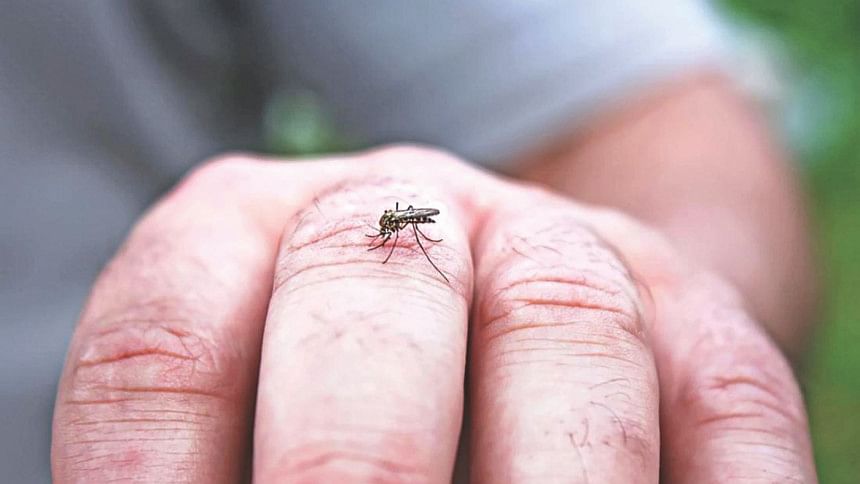Dengue is getting dangerous!

The scarring illness of dengue in the urban area is not uncommon, for decades it usually occurs during the end of rainy seasons. During last few years there were no casualties because of mass awareness and carefulness but unfortunately this year dengue is causing a disastrous comeback in the urban areas.
Dengue is a febrile illness caused by a flavivirus transmitted by the mosquitoes. It is endemic in the Asia and Pacific, Africa and America. Approximately 50 million infections occur annually and dengue is the more rapidly spreading mosquito-borne viral illness.
Dengue can affect anyone but tends to be more severe in people with compromised immune systems and children. Because it is caused by one of four serotypes of the dengue virus, it is possible to get dengue fever multiple times. However, an attack of dengue produces immunity for a lifetime to that particular viral serotype to which the patient was exposed.
Dengue goes by other names, including 'breakbone fever' or 'dandy fever'. Victims of dengue often have contortions due to the intense joint, muscle, and bone pain, hence the name 'breakbone fever'. Slaves in the West Indies who contracted dengue were said to have dandy fever because of their postures and gait.
Symptoms include severe headache, body ache, joint and muscle pain, pain in the back of the eye, pain in the backbone along with high rise of temperature. Fever usually goes up to 1040F, and poorly respond to paracetamol. These symptoms persist for 4-5 days along with distaste in mouth, nausea and weakness. Usually on the 6th day, reddish rash appears throughout the body, mostly in the palms and sole with itching. At this stage, there would not be any fever and patients appear to be normal except some weakness for few more days.
Because dengue fever is caused by a virus, there is no specific medicine or antibiotic to treat it. It is usually self-limiting. For typical dengue fever, the treatment is directed towards relief of the symptoms. For fever and pain, you may have paracetamol or do tepid sponging but never take any Nonsteroidal anti-inflammatory drugs (NSAID) like ibuprofen. Drink plenty of water, fruit juices, oral saline, coconut water etc., at least 3-4 litres of liquid per day.
Dengue haemorrhagic fever is a more severe form of the viral illness. Symptoms include headache, fever, rash, and evidence of haemorrhage in the body. Petechiae (small red spots or purple splotches or blisters under the skin), bleeding in the nose or gums, black stools, or easy bruising are all possible signs of haemorrhage. This form of dengue fever can be life-threatening and can progress to the most severe form of the illness, dengue shock syndrome. This type of complication can be managed in the hospitals by adequate supportive care and sometimes the patient may need fresh blood or platelet transfusion.
As there is no vaccine commercially available yet to prevent dengue, we can take precautionary measures to get rid of it. Check every nook and corner of your house for stagnant water like in your flower tub, shells of coconut, old tyres, any old container or discarded pot etc. and remove those immediately. Use mosquito net when you sleep. Use full sleeve shirts and trousers when you go out. Use anti-mosquito repellants. Avoid mosquito bites, especially after the sunrise and before sunset.
If you suffer from dengue do not get scared, just take paracetamol to bring down your temperature or to relieve pain and drink plenty of liquid, it is usually self-limiting and goes away within 5-6 days. check your platelet count and if it is less than the normal limit, consult with a doctor immediately.
The writer is an Assistant Professor of Medicine at Z H Sikder Women's Medical College and Hospital, Dhaka.

 For all latest news, follow The Daily Star's Google News channel.
For all latest news, follow The Daily Star's Google News channel. 



Comments